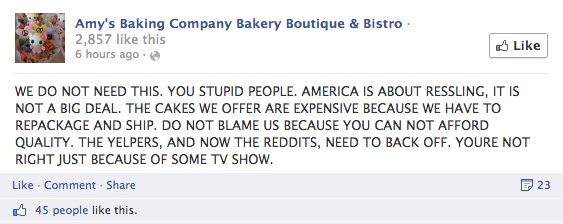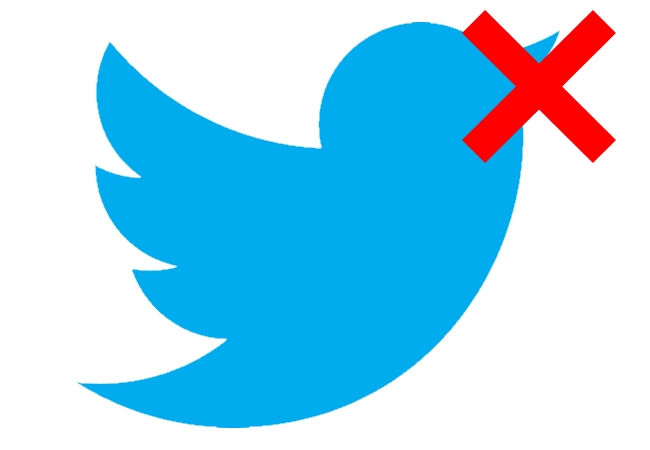Great way to deal with objects who like to 'stoned' on social networks
In English, the term "bully" refers to those who like to use power or power to harm or bully weaker people and now "bully" is no longer limited to simple actions like pushing people another to provoke, call someone's name rudely or more serious acts such as stealing money. "Bully" in modern society is everywhere, in many forms and now "bully" is present on the Internet (also called Online Bully or Cyberbully ).
"Cyberbully" refers to those who specialize in intimidating, bullying, harassing others online - people who like to attack or harass individuals and businesses online. Cyberbullying can be conducted via social networks ( Facebook, Twitter, Myspace, Google+ .), phone messages, email, review on the site or even through online games . Reason for justification for their actions is simply a difference in opinion or comes from a real-life situation and they do not achieve "fairness" so they decide to use social networks to "resolve grievances".
People who like to attack others on this network can take control of the page, write bad reviews on the page, add negative comments to your state, tag you into a provocative status or even If you are a fan of a fanpage, you will be able to directly post the "kicking" words directly on your "wall" . For an enterprise that uses Fanpage to promote products or connect with customers, if so " Bully "attack in this form, they may fall into a media crisis that is difficult to solve.

So how to deal with those who like to take advantage of social networks to attack others? Here are some simple tips to help you solve the situation.
Some important notes when being "stoned" on social networks
Cyberbulling is very difficult to deal with. They are personal, rude and even very cruel. However, what you need to remember is that nothing makes you worse than attacking these objects again.
Here's an example of Amy's Baking Company . The bakery has featured prominently on the Kitchen Nightmares television show and has been attacked by a lot of annoying comments from users on sites like Yelp and Reddit shortly afterwards. No matter how bad the company is, they don't deserve to be personally attacked. However, unfortunately, the bakery's reaction to this "cyberbullying" behavior is not appropriate at all.

The wrong strategy of the cake maker Amy when responding to negative feedback from users
This is a good example of what you should not do when someone attacks online. Angry reaction does not have any impact on "stoned lovers," on the contrary, it makes your reputation worse.
Similarly, if you are a person intimidated on Facebook, the best thing is to never respond with a status that is also "threatening".
Handle situations in a tactical way
The first thing is to regularly check your Facebook and Twitter accounts to make sure your "home" is clean, including "walls" / pages and News Feed. As a result, you will quickly discover that you have been tagged into statuses or have any new comments on your posted status.
For businesses, when there is a communication crisis on social networks, what needs to be done is to have a specific action plan, including information such as who will be responsible for representing the organization to give make public reactions, when to speak, when to silence or when to remove comments, provocative reviews .
There is a specific tactic that will help you know what you should do, and prevent the implementation of misbehavior, making the situation worse.
Selective answer
For situations of online attack, you will usually get a lot of comments. In order to create transparency, it is necessary to stay connected with customers / Follower but you do not need to give feedback to all those messages. You will go crazy if you try to "cover" all harassment comments.

Be transparent
You cannot ignore when attacked on social networks, especially if this behavior is repeated many times or constantly. Instead of trying to hide it, be open to it, write down crisis acknowledgment posts and be ready to defend your stance. Make sure you have sharp opinions about being attacked and ready to stand up for yourself. This will make customers / follower understand why you believe in what you do and make you more discerning when faced with crisis.
Also, if you need to monitor or delete comments on the page, make sure you let fans / customers / followers follow you well and why you do so. They will understand the problem if you have a good reason and purpose. Transparency is the best policy to deal with unreasonable attacks.
For Facebook
When someone has a legitimate complaint about the service or has had a bad experience using your product and trying to tell you about it, deleting the complaint is a bad idea. However, when someone says things that are contrary to reality or attacked in a way that lacks evidence of your employees / products, there is no reason for you to ignore them.
If "bully" simply disagrees with the point of view, there is no problem in giving a comment and in some cases, it may be more specific to explain the position. However, if they are harassing words, personal attacks or spam comments, don't hesitate to "remove" them. You have many choices when faced with unwanted comments on Facebook.

Hide (Hide)
Hide is the first choice for any negative comment you want to remove. Just click on the icon in the upper right corner of each comment or hover over this area and you'll see it. The commenter will not recognize the comment has been hidden and your fans cannot see it either.

Delete (Delete)
Once the comment has been hidden, you will have options such as deleting or "report" (reporting spam messages) or prohibiting / blocking who wrote the comment. Deleting a comment will remove it permanently and the person who wrote the comment will realize that it has been deleted.
This is a pretty risky decision to make, because it can prompt users to make more comments for revenge. If you decide to delete a comment, you should have a response that explains why the comment was deleted, such as inappropriate language, abuse or violation of terms and conditions. This allows other Follower to know that you do not ignore their concerns or delete comments randomly.
- How to block unwanted things on Facebook?
Report (Report)
You can also report a comment on Facebook if they violate the terms and conditions of the page. However, this approach may not bring immediate results as Facebook's processing time is not always fast.
Ban (Ban)
If the object continues to "stoned" you, consider tougher measures. Prohibiting a user will make them no longer able to post on the page, like or comment on Post but still "like" the page and can share the content on your site.

Block certain words (censoring content)
If you are the administrator of the page, you can block certain words to not appear on your page and enable profanity filters. When people put a word that you have blocked into an article or comment on a page, that article or comment will automatically be marked as spam. For obscene filters, Facebook will determine what to block by using the most reported words and phrases and being marked offensive by the community based on the level of profanity you have chosen.
For Twitter
Twitter users can also use Mute ( Block ) , Block (Report) and Report (Report) features to respond to Cyberbully actions.
Mute means you won't see tweets or retweet in your feed anymore. In addition, you will not receive notification messages when the user sends a message that you leave them in "Mute" mode. The "Mute" friend can still reply, "fave" or retweet one of your tweets.
Block
Blocking a user will prevent them from following or adding you to the list, sending messages directly, viewing accounts or tagging you into a photo. If someone blocks you, you will automatically unfollow them. Twitter does not send notifications to people you have blocked, however, this social network does not prevent them from mentioning you in a tweet even though you did not see the post.

Report
Similar to Facebook, you can also report other users on Twitter if they disrupt you. This may result in them receiving an alert or account suspension. This is the ideal way if you really feel disturbed by someone.
Tweet protection
Protecting tweets makes sure only the people you approve can follow and see your tweets, and others will not be able to retweet or quote those tweets. However, they can still tag you in any of their posts. This is the only way to use in extreme situations with temporary time. If you want to make successful marketing campaigns on Twitter, more and more users know your account as well. Therefore, make sure you turn off this feature when the crisis has begun to ease.
The good news is that social users are smart enough now to recognize fake reviews and comments and have bad intentions. However, if you are using Facebook or Twitter to run online marketing campaigns, it will be much safer if you closely follow Follower and your fans. Because it is hard to predict when Cyberbully will appear and when they will make attacks.